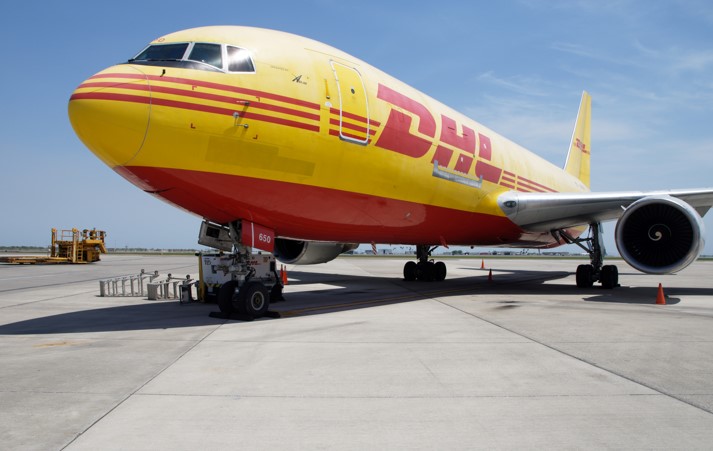HARLINGEN — Air cargo tonnage at Valley International Airport bounced back in February but is still down 13.2 percent this fiscal year.
Last year’s numbers were boosted by people buying online during the peak of the pandemic, and that has subsided somewhat. But overall, air freight was up 12.3 percent at VIA in February.
Fedex was up 19.3 percent for the month, Southwest Airlines was up 125 percent, and ABX Air, which has an operating agreement with DHL, was up 13 percent.
Southwest’s air cargo numbers are expected to surge higher with the airline increasing its number of flights at VIA from four per day to seven daily in March. Southwest planes carry both passengers and cargo.
“More planes in the market and more belly space, the more they can haul,” said Marv Esterly, director of aviation at Valley International. “And that’s only going to get better with the increase in flights in March.”
“Overall, we’re still down 13.2 percent over last year,” he added. “I suspect those numbers, by the end of the year, will catch up a bit.”
Fedex has been adding surcharges to some of its package services due to the increasing price of diesel and aviation fuel.
UPS is also predicting emergency surcharges, noting early in March that “due to the situation in Ukraine, the price of crude oil surges to its highest level since 2014, to more than $110 a barrel. Analysts anticipate price may rise to $130 within the next few weeks.”
In fact, as of Tuesday, the price-per-barrel of Brent Crude was down to $107 and West Teas Intermediate was at $103, although the volatility within the crude oil market remains in place.
The global air cargo market continues to strengthen and is nearly back to its pre-pandemic 2019 levels as freight volumes, capacity and load factors stabilized.
That’s the word from industry analysts CLIVE Data Services, which reported chargeable weight in February was down 0.7 percent from pre-COVID 2019 levels and up 2.6 percent over February 2021.
But the war in Ukraine and disruptions in global supply chains, not to mention the removal of Russian crude oil from the market, are creating worries for the industry.
“The war in Ukraine is another example of an external event of which the air cargo industry has no control over, but which is having a profound impact, as happened with COVID,” said Niall van de Wouw, managing director of CLIVE Data Services.
“When consider the recovery of the aviation industry from the pandemic, the return of passengers is still a big question mark,” he added. “The war in Ukraine presents another big question mark, particularly over Europe-Asia trade flows. It is difficult to overestimate what this could mean down the line.”
Another related issue for air freight haulers is, just like consumers, the cost of fuel.
According to the Argus U.S. Jet Fuel Index, aviation fuel on Tuesday was going for $4.77 per gallon on the spot market. Compare that to the average price of $2.30 per gallon on Dec. 30, 2021, and it becomes clear air freight carriers are increasingly concerned about pricing delivery costs correctly to cover the additional expense.
And now there are reported aviation fuel shortages at some airports.
Officials at Austin-Bergstrom International Airport issued a fuel-shortage alert late last month, instructing arriving pilots to land with more fuel than usual just in case the airport is unable to re-fuel the planes.
“This has become a more regular occurrence as the airport is seeing increased flight activity,” Sam Haynes, an airport spokesman, told Fox Business. “There are no immediate impacts to operations, but it’s possible flights could have to divert to refuel before landing at AUS.”
Southwest offers two daily flights from Austin-Bergstrom to Harlingen Sunday through Friday and a single flight on Saturdays.
Valley International officials say they are not experiencing any fuel shortages at their fixed-base operators which service planes at VIA.




